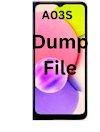What is Dump File?
In the context of embedded MultiMediaCard (eMMC) storage, a dump file refers to a binary file that contains a complete or partial copy of the eMMC's contents. The dump file is typically created for backup, analysis, or forensic purposes.
eMMC is a type of non-volatile flash memory commonly used in mobile devices, tablets, and other embedded systems. It serves as a primary storage medium, holding the operating system, user data, and various files.
A dump file of an eMMC can be obtained by creating a bitwise copy of its entire content, including the file system structures, partition tables, and actual data. This process, often referred to as "dumping" or "cloning," captures the exact state of the eMMC at a specific point in time.
Dump files are useful in several scenarios, including:
1. Data Recovery: If an eMMC becomes corrupted or inaccessible, a dump file can be used to recover lost data by analyzing and extracting files from the copy.
2. Firmware Analysis: Dump files can be examined to analyze the firmware or software running on the eMMC, aiding in reverse engineering or security analysis.
3. Forensics: Dumping an eMMC can be part of a forensic investigation to gather evidence or analyze the device's data.
To create a dump file of an eMMC, specialized tools and techniques are often required, depending on the device and its security features. The process typically involves connecting the eMMC to a computer or using specialized hardware to interface with the eMMC chip directly.
It's important to note that the creation and usage of dump files may be subject to legal and ethical considerations.
Why Need Dump File?
A dump file, also known as a crash dump or memory dump, is a file that contains a snapshot of a computer's memory at a specific point in time. Dump files are typically generated when a system or application crashes or encounters a critical error.
Dump files serve several important purposes:
1. Debugging: Dump files are valuable for software developers and system administrators when troubleshooting crashes and errors. They provide a detailed record of the state of the system at the time of the crash, including the values of variables, the call stack, and the memory contents. This information helps in identifying the cause of the crash and debugging the software.
2. Root cause analysis: Dump files are crucial for investigating the root cause of system failures. By analyzing the dump file, experts can determine whether the crash was caused by a software bug, hardware malfunction, or other factors. This information helps in resolving the issue and implementing appropriate fixes.
3. System stability analysis: Dump files provide insights into system stability and performance issues. By analyzing recurring dump files, patterns or trends can be identified, leading to the detection of underlying issues that may not be immediately apparent. This analysis aids in optimizing system performance and stability.
4. Forensics: Dump files can be useful in forensic investigations, such as during the analysis of system compromises or malware attacks. They provide a snapshot of the system's memory, allowing experts to examine the state of the system during the incident and uncover any malicious activities or indicators.
Dump files are often generated automatically by the operating system or applications when a crash or error occurs. They are typically saved to disk for later analysis. However, it's important to note that dump files may contain sensitive information, such as passwords or personal data, so they should be handled with caution and treated as potentially confidential.
In summary, dump files are essential for diagnosing and debugging software crashes, analyzing system stability, investigating system failures, and conducting forensic investigations. They provide valuable insights into the state of the system at the time of an error, enabling effective troubleshooting and resolution of issues.






0 Comments